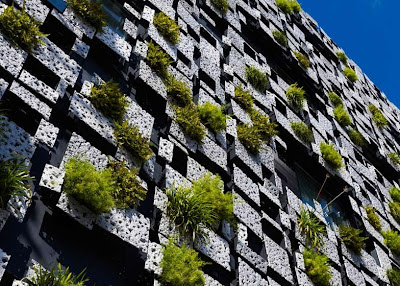This is the third post of WLASze: Weekend Links on Arts, Sciences and zero economics. Previous two posts are linked here.
Just a couple of sets of links this time around.
An interesting blogpost asking "How do we distinguish between “lucky” world [chess] champions like Khalifman and “convincing” world champions like Fischer? How can we be confident that the winner of a match is really the best player in the world?" Lucky for us, the post describes statistical techniques available to do just that:
http://www.chessbase.com/Home/TabId/211/PostId/4011019/are-the-chess-world-champions-just-lucky-040913.aspx
The problem is not a trivial one, especially in the environment such as chess. We come to think about luck as applying in the cases where random outcomes are possible within the game rules or set ups. Alas, randomness can be induced into a game setting by simply having two humans facing each other. In a way, Kasparov's matches against the IBM computers have potentially shown that just one human is sufficient to induce randomness into the game.
Dezeen has two articles on buildings skinned with plants: vertical gardens.
Here's one in Paris II: http://www.dezeen.com/2013/09/08/the-oasis-of-aboukir-green-wall-by-patrick-blanc/. It is a stunning example of a vertical garden and, frankly, makes me want to replicate the exercise with my own garden wall.
The really significant bit - aside from stunning aesthetic and complex, beautiful design - is that the building is a historical one, in Paris II. In other words, the city allowed this bold intervention into cityscape and architecture to proceed. They deserve recognition for doing so. The effect is superb.
They do have some experience with vertical gardens in public spaces, however. Here's another project Vertical garden of the Musee du Quai Branly in Paris, France, also created by Patrick Blanc
Maturing design for the workspace/house in Linkebeek, Belgium created by Samyn & Partners and the same Patrick Blanc:
Another article is about providing an offset lattice of plants to a historical building: http://www.dezeen.com/2013/09/07/gnration-by-carvalho-araujo/
What a superbly complex, multi-use, challenging regeneration project. "The project uses the concept of occupation as motif," explain the architects. "It explores the boundary between an abandoned existing structure and a new invader construction who takes over the space." Another superb effort!
You can see more stories about planted walls and buildings at the bottom of the first post (scroll to the bottom of the page here: http://www.dezeen.com/2013/09/08/the-oasis-of-aboukir-green-wall-by-patrick-blanc/). My favourites are:
http://www.dezeen.com/2013/03/13/sportplaza-mercator-by-venhoevencs/
http://www.dezeen.com/2012/11/08/house-in-travessa-do-patrocinio-with-green-walls/
http://www.dezeen.com/2012/06/18/green-cast-by-kengo-kuma-associates/
Enjoy!
Just a couple of sets of links this time around.
An interesting blogpost asking "How do we distinguish between “lucky” world [chess] champions like Khalifman and “convincing” world champions like Fischer? How can we be confident that the winner of a match is really the best player in the world?" Lucky for us, the post describes statistical techniques available to do just that:
http://www.chessbase.com/Home/TabId/211/PostId/4011019/are-the-chess-world-champions-just-lucky-040913.aspx
The problem is not a trivial one, especially in the environment such as chess. We come to think about luck as applying in the cases where random outcomes are possible within the game rules or set ups. Alas, randomness can be induced into a game setting by simply having two humans facing each other. In a way, Kasparov's matches against the IBM computers have potentially shown that just one human is sufficient to induce randomness into the game.
Dezeen has two articles on buildings skinned with plants: vertical gardens.
Here's one in Paris II: http://www.dezeen.com/2013/09/08/the-oasis-of-aboukir-green-wall-by-patrick-blanc/. It is a stunning example of a vertical garden and, frankly, makes me want to replicate the exercise with my own garden wall.
The really significant bit - aside from stunning aesthetic and complex, beautiful design - is that the building is a historical one, in Paris II. In other words, the city allowed this bold intervention into cityscape and architecture to proceed. They deserve recognition for doing so. The effect is superb.
They do have some experience with vertical gardens in public spaces, however. Here's another project Vertical garden of the Musee du Quai Branly in Paris, France, also created by Patrick Blanc
Maturing design for the workspace/house in Linkebeek, Belgium created by Samyn & Partners and the same Patrick Blanc:
Another article is about providing an offset lattice of plants to a historical building: http://www.dezeen.com/2013/09/07/gnration-by-carvalho-araujo/
What a superbly complex, multi-use, challenging regeneration project. "The project uses the concept of occupation as motif," explain the architects. "It explores the boundary between an abandoned existing structure and a new invader construction who takes over the space." Another superb effort!
You can see more stories about planted walls and buildings at the bottom of the first post (scroll to the bottom of the page here: http://www.dezeen.com/2013/09/08/the-oasis-of-aboukir-green-wall-by-patrick-blanc/). My favourites are:
http://www.dezeen.com/2013/03/13/sportplaza-mercator-by-venhoevencs/
http://www.dezeen.com/2012/11/08/house-in-travessa-do-patrocinio-with-green-walls/
http://www.dezeen.com/2012/06/18/green-cast-by-kengo-kuma-associates/
Enjoy!








No comments:
Post a Comment